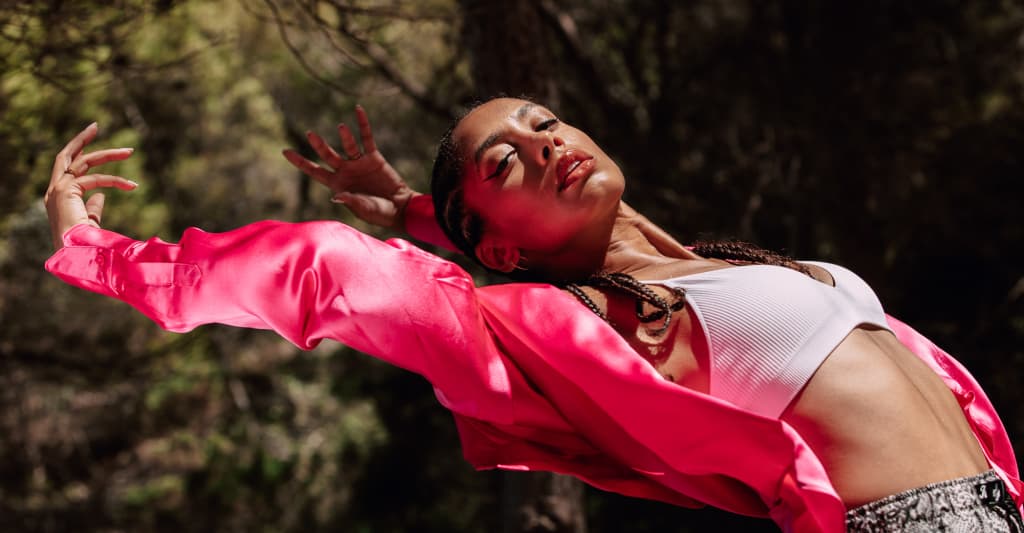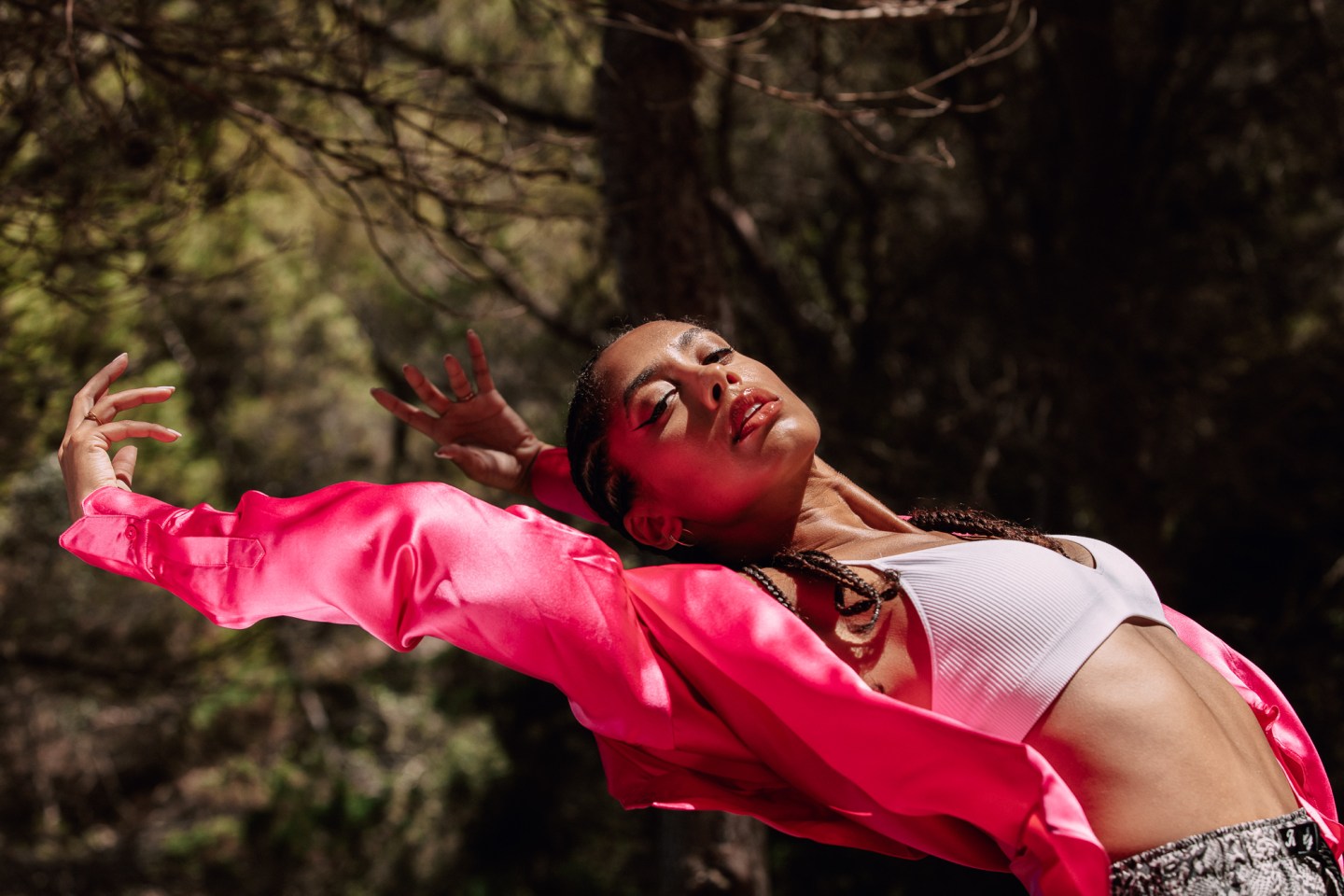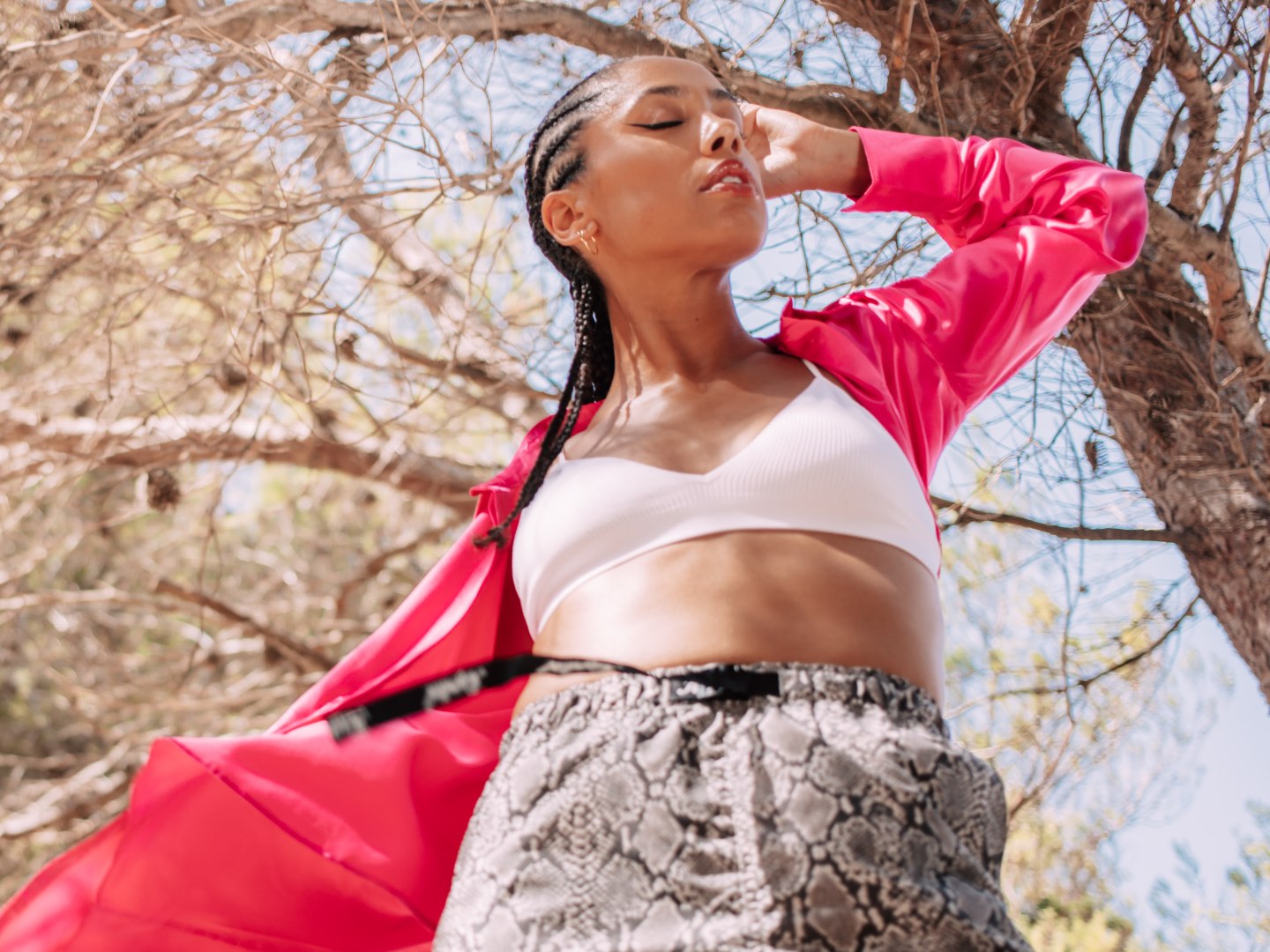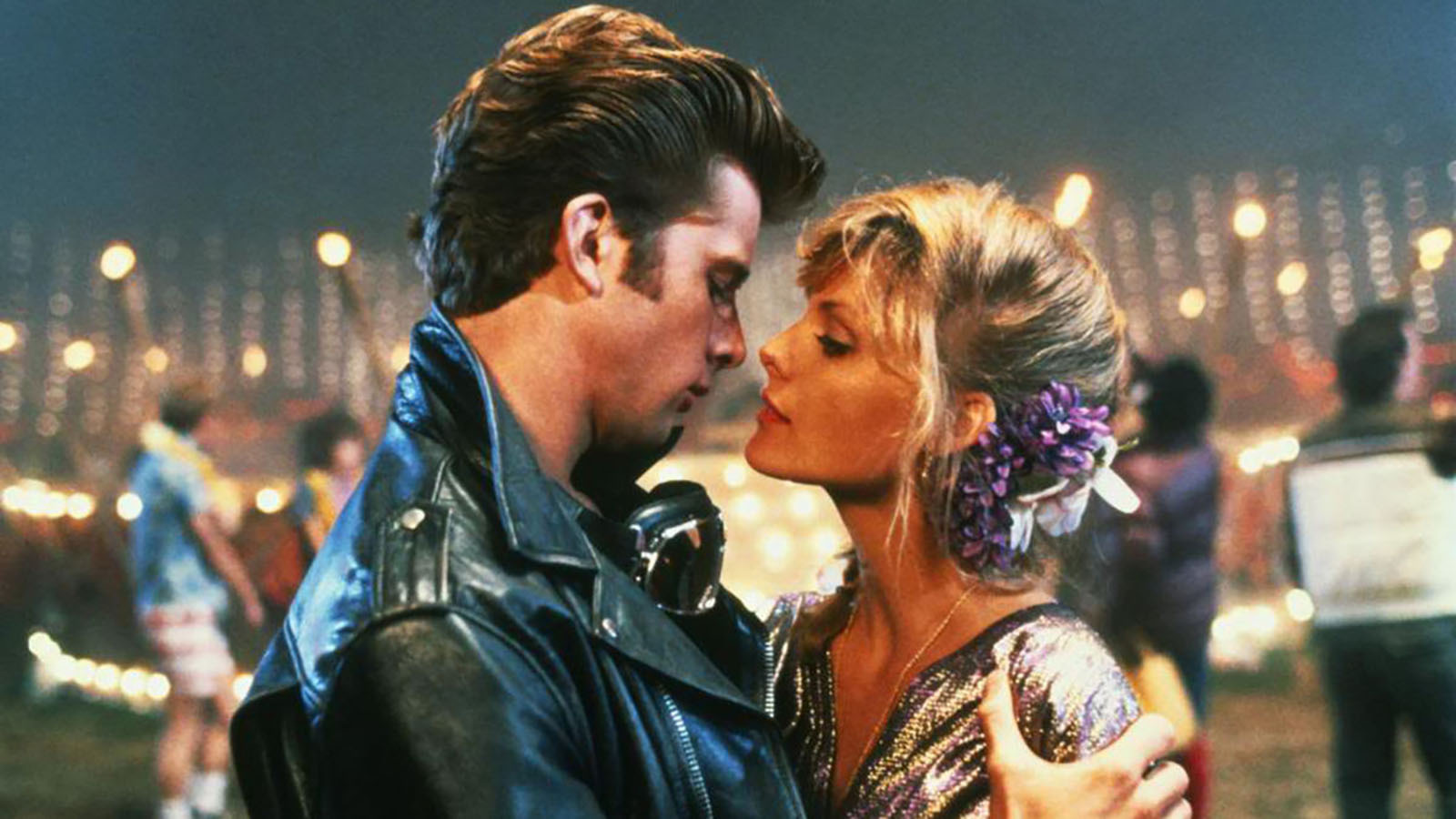#Jayda G’s scientific method is making the world dance


Jayda G. Photo by Nabil Elderkin.
Jayda G cares. Whether she’s urging people to pay attention to climate change, educating new dance music fans on the genre’s rich history, or just helping people to have a good time, the environmental scientist-turned-DJ and producer is always intentional.
After self-releasing EPs from “under a rock,” as she described it to The FADER’s Arielle Lana LeJarde, for years, Jayda’s career surged with her iconic 2017 Dekmantel Festival Boiler Room set, propelling her to become one of her generation’s most celebrated DJs. Since then, she’s secured a BBC Radio 1 residency, launched JMG Talks (her platform for young scientists to share their research), and landed a GRAMMY nomination for her 2021 single “Both Of Us.”
The public persona of Jayda G and the person her friends know her as, Jayda Guy, come together on her new album. Due out June 9, Guy pays homage to her dad, William Richard Guy, as well as the African-American experience and the perseverance of Black women. While longtime fans have gotten to know Jayda G over the years, she’s finally showing us a bit who Jayda Guy really is.
Last week, Jayda and I discussed the difference between observing crowds and observing animals, tips on curating the perfect DJ set, and how learning about her family has taught her about herself.

Nabil Elderkin
This Q&A is taken from the latest episode of The FADER Interview. To hear this week’s show in full, and to access the podcast’s archive, click here.
The FADER: With all the different cultures and places you’ve been, is it easy to get used to a crowd and read the room?
Jayda G: There’s a natural way of engaging with the music that’s just for me and myself. That’s when you see me dancing and singing along, because I’m personally having a good time. When it comes to reading the room and seeing how people are engaging with the music, there’s definitely tough times, moments when nothing’s working. I don’t know what to play. I’ve gone this way, I’ve gone that way. I’ve gone up, I’ve gone down, and nothing’s landing.
There are so many elements to making a good party. There’s the place — the city or the country you’re in. But there’s also the way the venue’s laid out, what time you’re playing, what time in the year it is, how long of a set you’re playing. I could go on and on. Sometimes those things all line up perfectly and it feels like magic. That’s what all DJs are striving for: that moment where everything is cohesive and everyone is experiencing the same thing at the same time. It’s true connection.
Do you think it’s harder observing a crowd or observing animals in nature?
I would have to say people are harder. Even if you’re watching a pigeon, there’s calmness to it all, where being in a club is anything but calm. It’s very exhilarating, a different type of energetic feel. They’re also just completely animals and humans. But actually, in a lot of ways, they’re really similar.
“Every artist has one thing that really lights them up, whether they advocate for it or not.”
Before we get into the album, what are your tips to a beginner DJ for curating the perfect set?
Oh gosh, it’s so hard. You really have to cut your teeth, get a lot of sets under your belt. At the beginning, the best ethos for me was playing things I liked, simple as that. You see so many DJs playing the cool new track, but I don’t know… I have to make myself happy first. If I’m not happy, then I know people aren’t happy.
You’ve said you’re not a partier and you live under a rock. Do you feel like that helps you navigate the music industry a little more clearly?
It really does. I’m kind of clueless in some ways, so I just stick to my music. The other part is part protection. I try to keep to myself. It seems to help me stay grounded.
How do you stay grounded while getting a Grammy nomination and remixing people like Dua Lipa and Taylor Swift?
I’m just like everyone else. I’m losing my shit all the time. I was super shocked that I got nominated. My manager called me and I was like, “Nah, you’re lying.” I proceeded to scream for two hours, jumping up and down.
In terms of getting Dua Lipa and Taylor Swift to come at me asking for a remix, I was so nervous. I’m everyone else. I’m just bumbling through and trying my best and super nervous about it all — knowing that in the career aspect of things these things matter, but in terms of my day-to-day and the type of person I am and my interactions with the people who are closest to me, they don’t.
Do you ever feel like you have a weight on your shoulders — since dance music is going back into the mainstream — to educate people in the way you have with JMG Talks, where you bring environmental science to people who might not understand what people are talking about?
Definitely. Before the Grammy nomination and the high-profile mixes, those are my two loves: music and nature. Those are the things that light me up. Every artist has one thing that really lights them up, whether they advocate for it or not. For some people it’s women’s rights; for some people it’s mental health. There’s always something that you care about deeply, and when you’re a public person, it’s good to talk about these things to the people that are looking to you. I love talking about science and nature, and I don’t wanna let go of it. I had this whole career in it, and I just don’t want to lose that because it’s a big part of who I am.
“Some of my happiest memories are sitting in the truck with my dad, singing to Prince.”
For Guy, you used recordings of your dad. How did you go about choosing which clips to include?
The premise of this album is that he passed away when I was 10 years old, and he was sick for a long time. And because he knew he was gonna pass, he recorded himself talking about his life for 11 hours. And we all have access to those 11 hours of videotape, which is amazing.
This is the good part about being the youngest sibling. My brother made a documentary a few years ago that looks at his relationship with my dad and his passing. In making that film, all the videotapes were transcribed and digitized. And then my sister, who’s an amazing TV producer, categorized all the transcriptions into various themes and storylines. So I had a lovely foundation to jump off of. Shout out to my siblings, Sol Guy and Shoshana Guy.
I’d read the transcriptions and my dad’s journals a lot. I’m a scientist, so I tackled all of this the same way I‘d do any research. I was taking notes, making links in terms of what I thought about these things I was reading. And then I’d bring that to the studio and sit there with a few amazing songwriters and write lyrics. Some of the words I’m singing are direct quotes my father was saying, and that’s how I figured out what the samples would be in the album: Every sample or interlude that’s used is something that directly relates to a song or is the basis of the song.
Do you have any favorite memories with him?
There’s so many. One of my favorites… Oh my gosh, this is really small-town stuff. When you live in the middle of nowhere, there’s no garbage truck run. You’ve gotta take all your garbage to the dump. We’d do a dump run in the pickup truck with all the garbage in the back. He’d put a tape in the cassette player and we would sing all the way. Some of my happiest memories are sitting in the truck with my dad, singing to Prince.
You got a better understanding of your father while digging into the archives of those recordings, and I feel like this record will do the same for us, about you. Did anything you learned about your dad give you a better understanding of yourself?
So much. The biggest take home was how grateful I am, because the decisions he made… I’m a product of that. My father grew up in Kansas City, but he also would go to Waterloo, Iowa a lot. He had family there, and those were a lot of precious childhood memories for him. He says in the tapes that in some ways he was always looking for Waterloo, and he found it in Grand Forks, British Columbia, Canada, where I’m from. So I’m so lucky that he kept searching for that because I have such a big love for my hometown. It was such a great, safe place to grow up. Even though I was the only Black kid in town, I still had amazing experiences being there. Even though I live in London and I love it here. I get homesick for Grand Forks and I have to go back at least twice a year.
“House music always was about protest and allowing yourself to be who you actually are. Somewhere along the way, people forgot that and thought it was just for white people.”
You’ve said Guy is a representation of you as Jayda Guy, rather than the Jayda G persona. Can you tell us more about who Jayda Guy is?
She’s a big nerd and lives under a rock, and I think she’s coming out more and more. I think the persona I’ve created as Jayda G is very extroverted, always smiling, bubbly, dancing, bright colors. I love where that’s gone, and I’m quite proud of it because it’s taken a lot of time and effort. But when it comes to Jayda Guy, I’m just a really big nerd. I’m really good at pretending to be an extrovert, but I’m actually an introvert. I need to recharge by being by myself.
I’ve always had the ethos that if you’re being vulnerable, it allows others to be vulnerable as well. I think the world would be a lot better if we all were a bit more vulnerable. It’s hard, but it lets people see who you really are, and that allows people to connect. That’s what it is to be human.
You’ve called your Jayda G persona one dimensional, but in my observations of you and your music, you always make it a point to ingrain parts of yourself in your music. Is that intentional or subconscious?
A bit of both. Even if I didn’t do it intentionally, I think it would still happen. I am who I am, and I put myself in my music, and I don’t think I could not do that, so I might as well make it a little bit more thoughtful and intentional along the way.
I think a lot of dance music fans are veering toward more personal and emotional dance music, especially after the pandemic.
I think it always has been like that; we just lost our way. The history of house music, of dance music, is rooted in Black America, it’s rooted in the LGBTQ community. It’s rooted in people who are oppressed, period. House music always was about protest and allowing yourself to be who you actually are. Somewhere along the way, people forgot that and thought it was just for white people. Shout out to Beyoncé for being a mainstream artist bringing it back. [Renaissance] is so good. There are so many good references in that album. It really brings it back home.
If you look at the early house tracks, they were always about freedom and joy, which is a protest unto itself when you’re a Black person in America. People are waking up, especially after the BLM movement, like, “Oh wait, there can be realness and emotion and depth in electronic and house music.”
That’s what makes your new album so powerful. It’s about not just the African American experience, but also the perseverance of Black women and how it ties into your life. That’s what makes it come full circle.
I think that’s what makes art interesting: when it’s multilayered. And what better way to make something multilayered than by talking about your life? Life is multilayered. It’s crazy, and half the time it doesn’t make any sense, but you can look back and hopefully draw a few lines together.

Nabil Elderkin
Is there anything else about the album you want people to know?
The biggest thing I want people to take home from this album is my dad. He was important to me because he was my dad and he was taken away from us way too soon, and I just want to share his story because I just think it’s amazing. He was such a resilient person. He really went for things that he did not see around him. It’s a really hard thing to strive for things that you don’t see around you day-to-day and want something better for yourself.
Life was hard for him. He was a Black man in the ’50s, ’60s. He would be 80 in a couple weeks if he was alive. When bad things happen, you have a choice of how those things inform you and the kind of person you wanna be. I’m not negating that shit gets really fucking hard sometimes, but it can allow you to grow and become a better person. That’s one take home.
The second take home is that grief doesn’t have to be this thing that we don’t talk about — and not just someone dying, but grief in all facets. Grief doesn’t have to be a bad thing. It’s just proof that you loved someone. I would rather have loved someone than not.
If you liked the article, do not forget to share it with your friends. Follow us on Google News too, click on the star and choose us from your favorites.
For forums sites go to Forum.BuradaBiliyorum.Com
If you want to read more Like this articles, you can visit our Social Media category.



